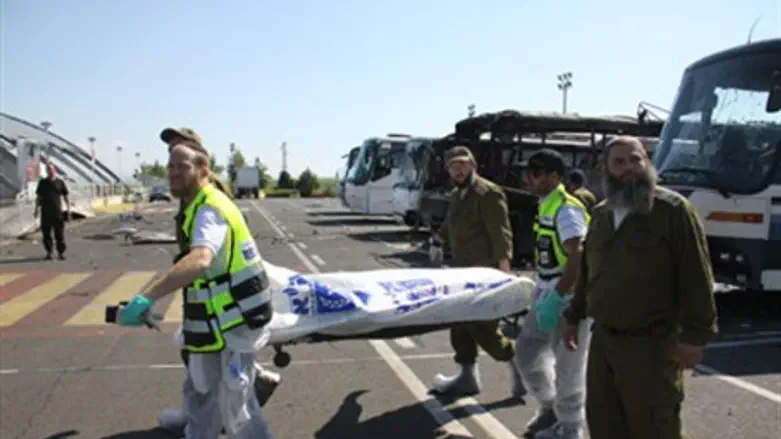
Bulgaria has asked Australia, Canada, Israel and Lebanon for help investigating last year's bus bombing in Burgas that killed six people including five Israelis, officials from its interior ministry said on Saturday.
"The investigation is entering a new stage: collect direct evidence on the perpetrators of the attack," a top ministry official, Kalin Gueorguiev, said Saturday, according to AFP.
"Requests regarding the criminal investigation have been sent to several countries including Canada, Australia and Israel," he was quoted as having told private Nova television.
Bulgarian Interior Minister Tsvetan Tsvetanov said on Friday that a request had also been sent to Lebanon, where the bomber's two suspected accomplices live.
He spoke a day after revealing that the bomber who killed five Israeli tourists and their Bulgarian bus driver at Burgas Airport on Bulgaria's Black Sea coast last July had not intended to die.
The man "was not a kamikaze but only meant to put the ... explosive device in the baggage compartment of the bus and detonate it later from afar," he told reporters.
Tsvetanov said the two suspected accomplices had been identified as Australian and Canadian passport holders who “belonged to the military wing of Hizbullah.”
Citing sources close to the case, the Standart daily reported Saturday that Bulgaria had asked Lebanon to arrest and interrogate the identified suspects.
It added that Sofia had asked Australia to confirm the identity of one of the suspects who had lived in Bulgaria under the false name of Brian Jameson and allegedly received a wire transfer from Hizbullah.
Canada has already confirmed the identity of the other suspect who went by the false name of "Ricco" in Bulgaria and had lived in Vancouver from age eight to 12.
The bomber's name is still not known, with his DNA and fingerprints failing to find matches in international databases. Investigators also believe a fourth person was involved.
Bulgaria's announcement that Hizbullah was being the attack led to renewed calls from Washington and Israel on the 27-nation European Union to designate the group a "terrorist" organization.
U.S. Secretary of State John Kerry on Tuesday urged the EU to follow Washington's lead by designating Hizbullah as terrorists in a move that will notably lead to a crackdown on its fund-raising activities.
However, diplomats have indicated that it is unlikely that Europe will name Hizbullah a terrorist organization because of its political strength in Lebanon.
Israel fingered Hizbullah and Iran as being behind the attack shortly after it occurred. On Friday, Iran once again denied that it was involved in the Burgas terror attack.
Iran's ambassador to Bulgaria said that “the Burgas attack has nothing to do with Iran,” adding that his country "condemned terrorism in all its forms."
Shortly after the attack, Iran's UN envoy accused Israel of carrying it out itself.
Hizbullah, whose political arm is the most powerful faction in the current Lebanese cabinet, also denied responsibility and hit out at Israel for waging "an international campaign" against it.
